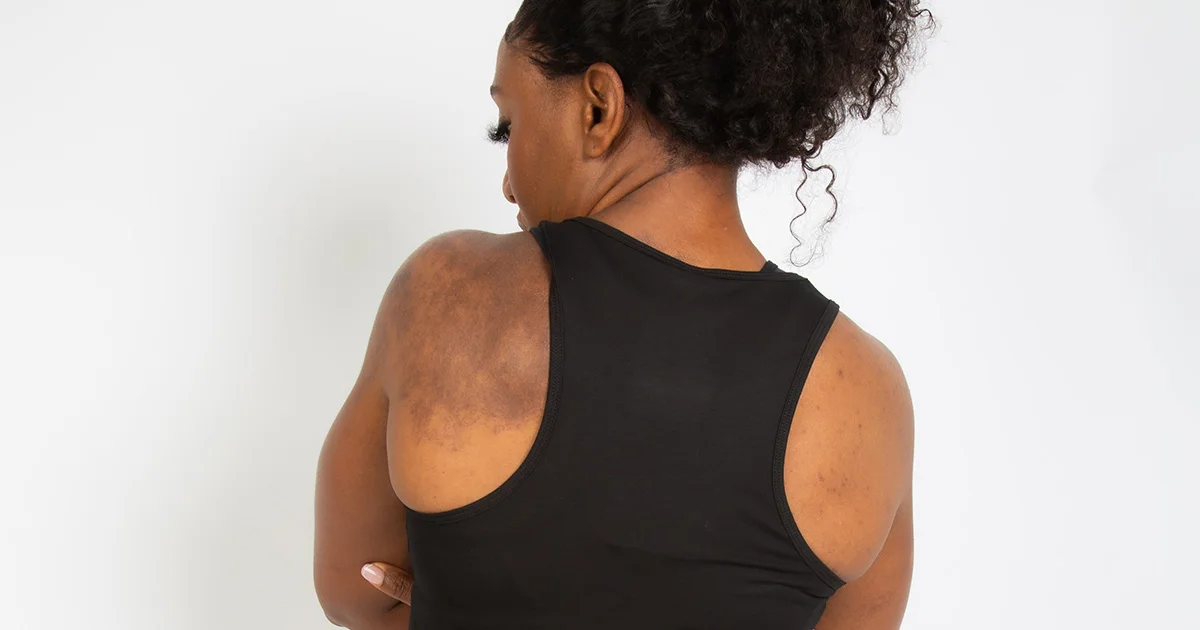Here's what we'll cover
Here's what we'll cover
Diarrhea is an extremely common illness. Most of the time, it causes inconvenience and discomfort, but if it’s severe it can also cause serious risks to health. Unintended weight loss can sometimes result from persistent or chronic diarrhea—aka diarrhea that lasts for more than two weeks—but it’s not something to aspire to. The weight loss you see after a couple of days of diarrhea is usually caused by losing lots of fluids (dehydration), and not by a reduction in fat tissue.
Short-term (acute) diarrhea is often caused by infections—bacteria and viruses—and medical professionals call it acute gastroenteritis. It typically lasts 1 or 2 days and goes away on its own. If you notice that you’re slightly lighter after it resolves, it’s likely because you’ve passed fluids that your body would typically hang on to. You also may have eaten slightly less if you felt unwell, making it feel like you’ve lost weight. However, once you are drinking and eating normally again and your fluid levels replenish, your weight should return to normal. Diarrhea itself can’t decrease body fat.
That being said, if diarrhea becomes chronic (lasting more than four weeks), it does have a more substantial impact on your weight and health through malnutrition and dehydration–including diarrhea caused by laxatives.
Acute diarrhea is the second most commonly reported illness in the United States and it causes frequent, watery bowel movements. This can be due to a few reasons: either the bowels are unable to absorb water correctly into the body (which can happen in people with celiac disease or chronic pancreatitis), or extra water is being drawn from the body into the bowels to flush out a certain food (e.g., the case of lactose intolerance) or source of infection.
Typically, diarrhea resolves on its own after a few days, although if it’s severe, it can be dangerous due to the dehydration it causes. According to the World Health Organization (WHO), diarrheal disease is the fifth most common cause of mortality overall in low-income countries, and the second leading cause of death in children under five years old. Not only can it cause malnutrition and dehydration, but the loss of fluid from diarrhea can cause electrolyte imbalances like hyponatremia (low salt) and hypokalemia (low potassium), which can cause dangerous heart arrhythmias and muscle problems.
How much does poop weigh?
The weight of a person’s stool varies widely depending on that person’s size, eating habits, how often they have a bowel movement, and even where they live. One global study that looked at fecal weight, fiber intake, and colon cancer risk stated that average stool weight is between 72 and 470 grams per day, with the highest fecal weight being in rural developing areas, Finland, and Japan, and the lowest fecal weight being in the US and United Kingdom.
The wide range of stool weight based on people’s country may have a lot to do with how much fiber they’re eating and water they’re drinking, since stool is comprised of food waste and water. The normal amount of water in stool is about 200 grams per day, so it may be that individuals with lower stool weight aren’t getting enough water daily. Indeed, a hallmark trait of constipation is small, hard, dry stools.
Do you lose weight when you poop?
You may feel slimmer or lighter after having a bowel movement, and it’s true that you’ll have “lost” the weight of your poop. In addition, you may feel bloated if you have a buildup of gas or slow digestive motility. People who are constipated experience more bloating, so having regular bowel movements may help to reduce bloating and reduce abdominal distention.
However, the reality is that you don’t actually lose weight in any meaningful sense after you have a bowel movement. Fat (adipose) tissue tends to be responsible for excess body weight, and this tissue isn’t actually in your digestive tract and it doesn’t change as waste moves through your body.
Treatment for diarrhea and weight loss
To treat weight loss and dehydration from diarrhea, the most important step is to replenish fluids. Taking in fluids with electrolytes (water with salts and sugars dissolved in it) is easier for your intestines to absorb than water alone. Certain foods can also help to bulk up stools and reduce fluid loss. Try consuming:
Oral rehydration solutions like Pedialyte, diluted fruit juice, or sports drinks
Meat or vegetable broth
Bland foods (like those in the BRAT diet), including bananas, toast, oatmeal, white rice, and applesauce
Avoid milk and dairy products for a day or two, as they can sometimes worsen diarrhea.
It’s also important to determine the cause of the diarrhea. This can help to treat it quickly, as well as help you to avoid treatments that may actually worsen the situation. Anti-diarrheal medications can help, but don’t take them if you have bloody stools, as they can potentially worsen severe intestinal infection caused by bacteria. A healthcare provider can help with diagnosis and identifying the appropriate next steps for treatment.
Acute diarrhea is commonly caused by viral infections like norovirus, or exposure to pathogens like Salmonella or E. coli, often referred to as food poisoning. It can also be caused by changes in diet or even eating foods that contain synthetic sugar substitutes like sorbitol and xylitol. Chronic diarrhea can be caused by parasitic infection, fat malabsorption, and impaired digestion.
To manage the underlying cause of diarrhea, steps can include:
Identifying and eliminating any diet-based causes
Identifying any medication-based causes (e.g. magnesium-containing medications and antibiotics) and, if appropriate, finding an alternative
Working with a healthcare provider to diagnose underlying health conditions (e.g., infection, lactose intolerance, pancreatitis, Crohn's disease, irritable bowel syndrome (IBS), etc.)
Infectious sources of diarrhea tend to be transmitted via the fecal-oral route, so it’s essential to practice good hand hygiene and avoid eating contaminated food and water sources, particularly when traveling or when around young children.
If you are experiencing diarrhea that lasts longer than several days, or if you are experiencing weight loss due to diarrhea, it’s a good idea to talk to your healthcare provider to identify any appropriate steps to diagnosing or treating your condition.
DISCLAIMER
If you have any medical questions or concerns, please talk to your healthcare provider. The articles on Health Guide are underpinned by peer-reviewed research and information drawn from medical societies and governmental agencies. However, they are not a substitute for professional medical advice, diagnosis, or treatment.
Bashir, A. (2022). Laxatives. StatPearls. Retrieved on May 16, 2023 from https://www.statpearls.com/ArticleLibrary/viewarticle/24120#ref_7234824
Cummings, J. H., Bingham, S. A., Heaton, K. W., et al. (1992). Fecal weight, colon cancer risk, and dietary intake of nonstarch polysaccharides (dietary fiber). Gastroenterology, 103, 1783-1789. doi: 10.1016/0016-5085(92)91435-7. Retrieved from https://www.gastrojournal.org/article/0016-5085(92)91435-7/pdf?referrer=https%3A%2F%2Fwww.ncbi.nlm.nih.gov%2F
Descoteaux-Friday, G. J. & Shrimanker, I. (2022). Chronic diarrhea. StatPearls. Retrieved on May 16, 2023 from https://www.ncbi.nlm.nih.gov/books/NBK544337/
Lacy, B. E., Gabbard, S. L., & Crowell, M. D. (2011). Pathophysiology, evaluation, and treatment of bloating: Hope, hype, or hot air? Gastroenterology and Hepatology, 7(11), 729-739. Retrieved from https://www.ncbi.nlm.nih.gov/pmc/articles/PMC3264926/
Nemeth, V. & Pfleghaar, N. (2022). Diarrhea. StatPearls. Retrieved on May 16, 2023 from https://www.ncbi.nlm.nih.gov/books/NBK448082/
Ochoa, B. & Surawicz, C. M. (2012). Diarrheal diseases – acute and chronic. American College of Gastroenterology. Retrieved on May 16, 2023 from https://gi.org/topics/diarrhea-acute-and-chronic/
Oku, T., & Nakamura, S. (2007). Threshold for transitory diarrhea induced by ingestion of xylitol and lactitol in young male and female adults. Journal of Nutritional Science and Vitaminology, 53(1), 13-20. doi: 10.3177/jnsv.53.13. Retrieved from https://www.jstage.jst.go.jp/article/jnsv/53/1/53_1_13/_article/-char/ja/
World Health Organization (WHO). (2017). Diarrhoeal disease. Retrieved on May 24, 2023 from https://www.who.int/news-room/fact-sheets/detail/diarrhoeal-disease
World Health Organization (WHO). The Top 10 Causes of Death. (2020). Retrieved on May 24, 2023 from https://www.who.int/news-room/fact-sheets/detail/the-top-10-causes-of-death











